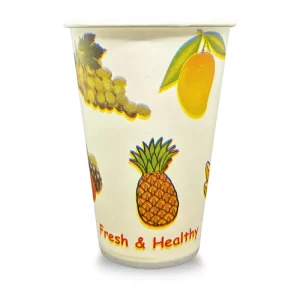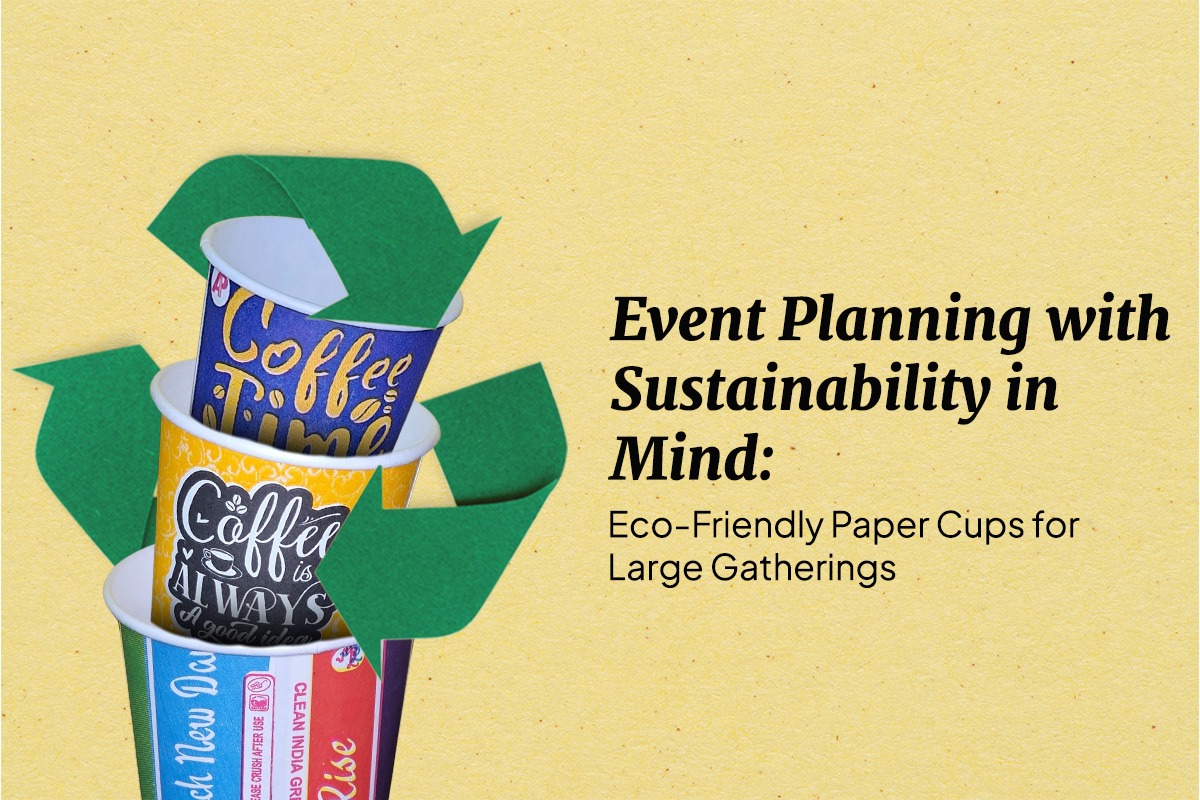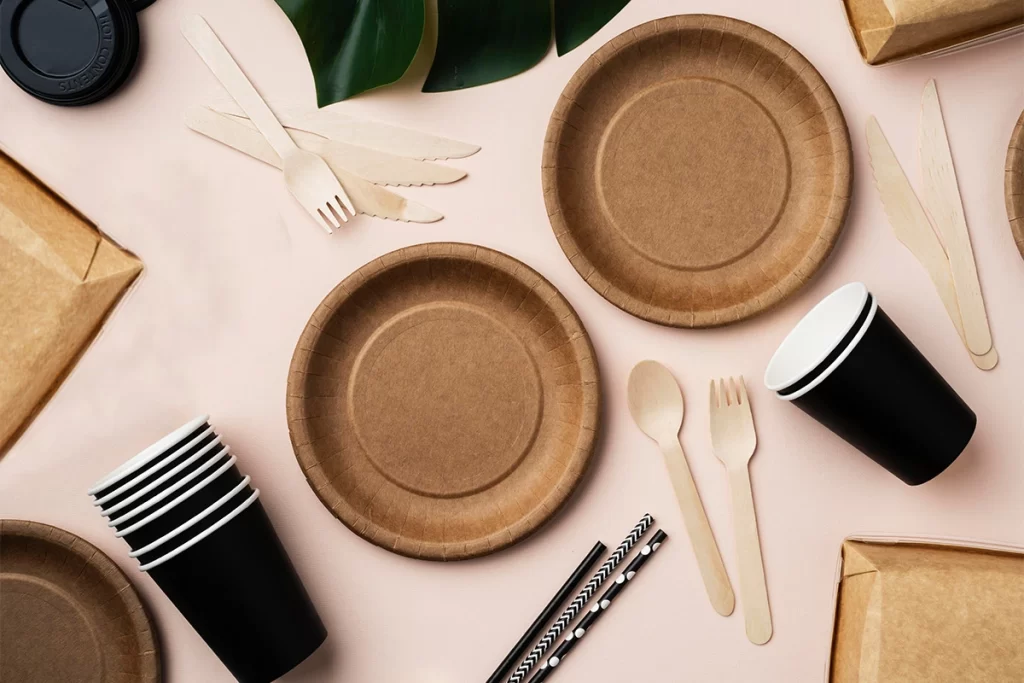When planning events, it’s important to think about sustainability. That means trying to minimize our impact on the environment. There are many best practices that you can go for. One of which is choosing eco-friendly paper products like paper cups rather than regular disposable ones. By using eco-friendly paper cups at events, we can reduce the harm caused by single-use plastics and other materials that don’t break down easily. It’s up to event planners to make choices that help protect the environment, and using these cups is a good step in that direction.
What is Sustainability and Why is it Important?
Sustainability means that one generation limits its needs without risking the ability of future generations to meet their own needs. It is a mixed-way method of using natural resources, promoting economic growth and social well-being while committing minimum environmental impact. It is important because:
- Sustainability goes a long way in preserving these resources that include air, water, and forests from being exhausted. It needs their proper management, to make sure that they are not depleted.
- Through the development of sustainable products and services, we will work to ease pollution, to limit greenhouse gas emissions, and to preserve wildlife, thereby reducing the impact on the environment.
- Sustainability promotes social equality by creating a just and equitable distribution of resources and opportunities for all individuals, both current and future, to guarantee that they have access to what they need to live healthy, fulfilling lives.
- The implementation of the sustainability principle enables the long-term survival of human civilizations on Earth by providing for resilience to include environmental fluctuations and scarcity of resources.
Sustainability needs balancing of how we use our resources while maintaining the environment, supporting the society, and creating a strong enough economy that is sustainable for the present and future generations.
A Growing Trend of Eco-Friendly Paper Cups
Eco-friendly paper cups are becoming popular as a sustainable alternative to regular disposable cups. These cups, manufactured by responsible paper cup manufacturers, are typically made from renewable materials like responsibly sourced paper or bamboo fibers. They don’t rely on limited fossil fuels and are designed to break down naturally after use, which is better for the environment.
Manufacturing processes for these cups are also getting more efficient, reducing waste and using resources wisely. Compared to traditional cups, eco-friendly paper cups are a greener choice for big events, cutting down on the environmental impact of disposable cups while still being convenient for attendees.
Some Best Practices to Go for
We’re discussing sustainable event planning practices that include prioritizing waste reduction, energy efficiency, and community engagement. Here are a few things that you can follow to take the first step towards going green.
- Firstly, opt for reused or recycled products rather than single-use items throughout activities daily.
- Having energy-saving lights and choosing efficient transportation is necessary for having less energy consumed.
- Partner with local suppliers who have shorter distances of shipping and sourcing.
- Go for inclusiveness and promote development in every detail of the planning process so as to foster social equity and community engagement.
- Develop and sustain a sustainable procurement and facility management plan and include it in the overall strategic plan.
- Show goodwill in every undertaking you get involved in by sensitizing others on responsible natural resource management.
- Promote people to make a gradual change in their habits by adopting sustainable practices in their daily lives.
- Develop events with environmental and social concerns that connect these values to all kinds of contexts and activities.
Sustainability encourages responsible behavior that benefits our earth and communities, which ultimately benefits our environment.
What is the Problem with Traditional Disposable Cups?
If you are replacing anything then you must know the reasons behind it. Below is the list that will give you valid points for the switch from traditional disposal Cups.
- Disposable plastic and Styrofoam cups cause environmental contamination due to their non-biodegradable nature.
- These materials take a long time to break down, threatening ecosystem health and sustainability.
- Events like festivals and conferences generate significant waste from single-use cups, contributing to greenhouse gas emissions.
- Using eco-friendly paper cups instead of plastics helps reduce environmental impact and waste.
- Compostable and recyclable paper cups are sustainable and renewable alternatives to traditional single-use cups.
- Switching to biodegradable printed paper cups can minimize waste and environmental impact during events like music festivals in India.
Many Indian celebrations collect compostable paper cups in order to offer cups made of paper, not plastic, to protect the environment for its attendees. So, dispose your plastic cups together.
Plan Your Event with Sustainability
Planning any event with a reason adds an additional purpose, and when the aim is sustainability, it becomes a double celebration. Here’s a few tips that you can follow when planning an event.
- Perform a sustainability assessment to find out possible ways to improve sustainable performance, and also set your measurable goals.
- Pick those places with green certifications that cut down the environmental impact and influence.
- Empower composting and recycling programs at the events in order to achieve waste reduction.
- Encourage participants to participate in sustainability through trip share and reusable containers.
- By partnering with town community-based organizations and providers, we are able to come up with strategies that will foster the social and economic sustainability of the people and the community.
Top of Form
Final Thought
In the end, we can say that using Eco-friendly paper cups should be the first choice for event organizers who are looking to lessen the environmental impact of traditional takeaway cups, as well as those seeking to meet their environmental goals.














